Thankful for every day after HPV-related cancer diagnosis
Michael West shares his incredible journey from diagnosis to treatment to a thriving recovery from head and neck cancer related to human papillomavirus.
Kaiser Permanente member Michael West saw an unexpected cancer diagnosis as an opportunity to improve himself and motivate others.
Michael West’s whole life changed when he was simply shaving one morning and felt a tiny knot in the left side of his throat near the lymph node area.
West, a Kaiser Permanente member in San Diego, California, sought medical attention right away. It was a decision that saved his life.
“The ironic thing is that I really had no other symptoms,” said West. “I felt fine.”
A shocking diagnosis
West was referred to Gabriel Calzada, MD, a head and neck surgeon at the Kaiser Permanente Garfield Specialty Center in San Diego. Dr. Calzada performed a biopsy on the neck mass. To West’s surprise, the biopsy results came back positive for cancer.
West was diagnosed with stage 4 human papillomavirus-related head and neck cancer.
“I still haven’t found the appropriate words to describe what you feel like when you hear the 3 dreaded words, ‘You have cancer,’” said West. “Time stops — everything stops — and honestly the first thing you think is, ‘Am I going to die?’”
Rising to the challenge
HPV is a common virus that is spread by intimate skin-to-skin or sexual contact. “This virus infects a vast majority of people as adults, and we haven’t figured out why but a certain minority of people develop cancers,” explained Dr. Calzada. It usually takes years, even decades, after being infected with HPV for cancer to develop.
About 70% of cancers that develop in the back of the throat, including the base of the tongue and tonsils, are caused by HPV. “Often, the exact location can’t be found, and in those instances, you have to treat the entire head and neck region with radiation supplemented by chemotherapy,” said Dr. Calzada.
Altogether, West endured 35 high-intensity radiation treatments to his head and neck.
He acknowledged his treatment journey was incredibly difficult. “I completely lost my taste. I also developed dry mouth because many of my salivary glands were obliterated by the radiation during that treatment,” West recalled. “You develop a lot of pain, fatigue, and even though you’re on the heaviest of the pain medications to try and get you through it, it still hurts.”
But West was determined and made a remarkable recovery.
I’m stronger in so many ways — mentally, physically, and spiritually — than I ever was. To be able to have a second chance to live your life in a better way, as a better person, is a gift that I’m thankful for every single day. Michael West
‘His due diligence paid off’
“It’s an example of facing your fears and overcoming,” said Dr. Calzada. “Mr. West rallied and focused on treatment, going to each of his appointments, and following the treatment recommendations, and his due diligence paid off.”
West regained his sense of taste. He was off the pain medications within one month of finishing treatment and has never felt any pain since.
“I’m stronger in so many ways — mentally, physically, and spiritually — than I ever was,” said West. “To be able to have a second chance to live your life in a better way, as a better person, is a gift that I’m thankful for every single day.”
Early protection works best
The incidence of HPV-related throat cancer is increasing each year, particularly among men. Vaccination can prevent over 90% of cancers caused by HPV, according to the Centers for Disease Control and Prevention. The HPV vaccine is recommended for adolescents at 11 or 12 years of age to ensure they’re protected before being exposed to the virus.
Everyone up to age 26 should get the HPV vaccine if they were not fully vaccinated already. Adults age 27 to 45 can talk to their doctor about getting the vaccine. HPV vaccination of adults provides less benefit, because more people in this age range have already been exposed to HPV.
“Never, ever, ever, give up,” encourages West. “Keep fighting and do everything you can to get through it because there’s a beautiful life waiting for you on the other side of that challenge.”
Learn more about cancer care at Kaiser Permanente.
-
Social Share
- Share Thankful for Every Day after HPV-related Cancer Diagnosis on Pinterest
- Share Thankful for Every Day after HPV-related Cancer Diagnosis on Linkedin
- Share Thankful for Every Day after HPV-related Cancer Diagnosis on Twitter
- Share Thankful for Every Day after HPV-related Cancer Diagnosis on Facebook
- Print Thankful for Every Day after HPV-related Cancer Diagnosis
- Email Thankful for Every Day after HPV-related Cancer Diagnosis
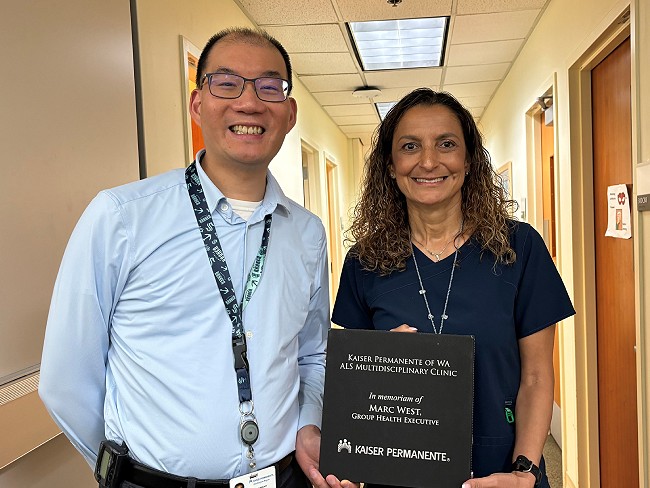
May 1, 2024
Tacoma ALS clinic recognized for high-quality care
Patients with amyotrophic lateral sclerosis, also called Lou Gehrig’s disease, …

April 17, 2024
5 common health conditions men don’t like to talk about
Some of the most common conditions affecting men carry a social stigma …

April 10, 2024
For a new mom, talking about her worries helped her heal
One in 5 people experience depression, anxiety, or other mental health …

April 9, 2024
Denver Fire Department annual blood work screenings triple
It’s easy to put off recommended health screenings, and sometimes even …

April 8, 2024
Reducing inequity with fruits and vegetables
Black Americans experience worse health outcomes compared to other populations …

April 1, 2024
Lynch syndrome: Managing the risk of hereditary colon cancer
Lynch syndrome is a gene mutation that increases colon cancer risk. Learn …

March 29, 2024
Faster recovery: From cardiac scare to exploring Italy
Virtual cardiac rehab helped Mike Kelly heal at home after a life-threatening …

March 20, 2024
Life after cancer: Surviving and thriving
A healthy life after cancer is possible. Learn how Kaiser Permanente helps …

March 14, 2024
Healthy kidneys support overall good health
Kaiser Permanente excels in preventing, detecting, and treating kidney …

March 14, 2024
Midwife offers personal care for mom facing complications
For Sam Beeson, having a midwife at her side during her pregnancy helped …

March 13, 2024
A call to 'Connect' to uncover the causes of cancer
Learn more about a study to help prevent cancer.

March 6, 2024
Joining a national effort to test new ways to find cancer
As part of the Cancer Screening Research Network, our researchers will …
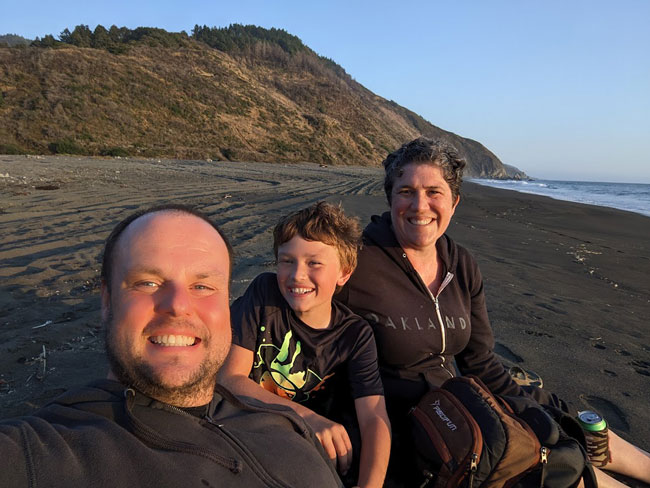
March 6, 2024
Colon cancer screening: She’s glad she didn’t wait
A timely preventive test reveals Rebecca Kucera has cancer. Swift treatment …

March 5, 2024
Researchers look for ways to find pancreatic cancer early
Early detection of the disease, before it becomes advanced, will increase …

February 26, 2024
What you need to know about colon cancer screenings
Screening for colorectal cancer is recommended for most people starting …

February 22, 2024
The journey of a lifetime
Care teams at Kaiser Permanente Fontana Medical Center helped Phillip Crawford …

February 21, 2024
From planning his funeral to celebrating his wedding
Gabriel Abarca had no hope for his future. Then the team at Kaiser Permanente …

February 21, 2024
Recovering at home after a double mastectomy
Innovative surgical recovery program helps breast cancer patients safely …

February 7, 2024
To stay well, get vaccinated and practice healthy habits
Cases of flu, COVID-19, and RSV continue to spread in our communities. …

January 24, 2024
A full-circle journey for one cancer survivor
Grateful for compassionate and successful Hodgkin lymphoma treatment at …

January 17, 2024
How diabetes can affect your heart
People with diabetes are more likely to have heart disease.

January 10, 2024
‘You don’t know unless you ask them’
Kaiser Permanente’s Patient Advisory Councils help us create exceptional …

December 26, 2023
How to prevent cervical cancer
Cervical cancer is highly preventable. Learn how HPV vaccination and regular …

December 21, 2023
It’s not too late to get your flu shot
Flu season often continues into early spring. Here are 5 reasons you should …

December 19, 2023
Determined to drop the weight and stop the cycle of diabetes
Following a COVID-19-related hospital stay, Robert DeLeon took charge of …
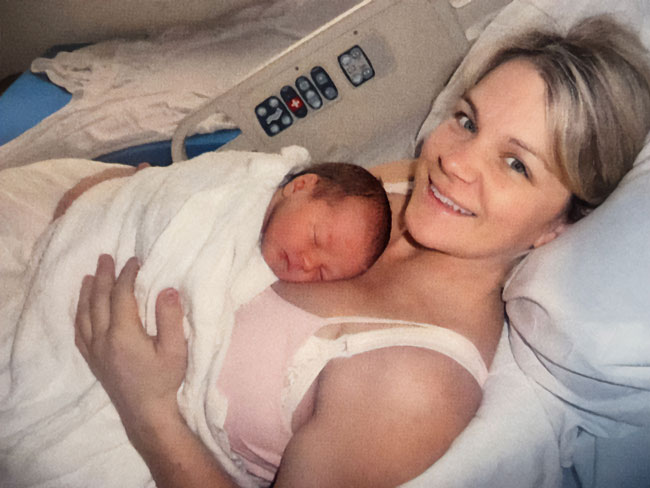
December 15, 2023
Family-centered care, through pregnancy and beyond
Members experiencing a low risk pregnancy have the option of having their …
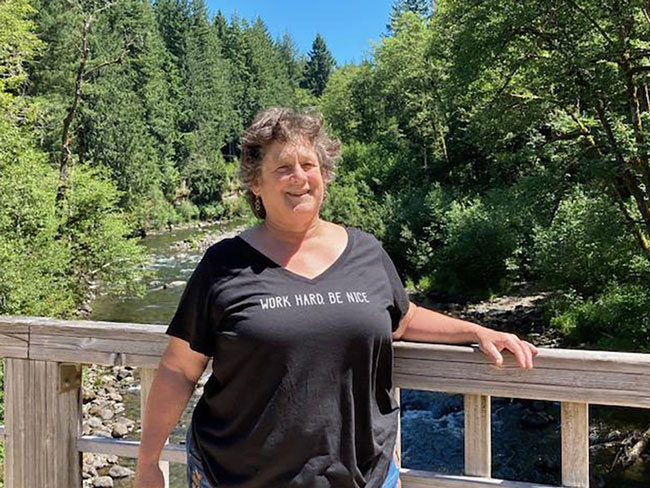
December 13, 2023
Nurse navigators guide patients from diagnosis to treatment
An unexpected cancer diagnosis left Jennifer Martin unsure of the next …

December 6, 2023
Leading research with gratitude
Learn how you can participate in a study to uncover what causes cancer …

December 6, 2023
Video prenatal visits are a boon for a busy working mom
A new care option offers a mix of in-person and virtual visits, supported …

December 1, 2023
Surviving — and thriving — after cancer
From diagnosis to recovery, David Parsons, MD, shares how screening, treatment …
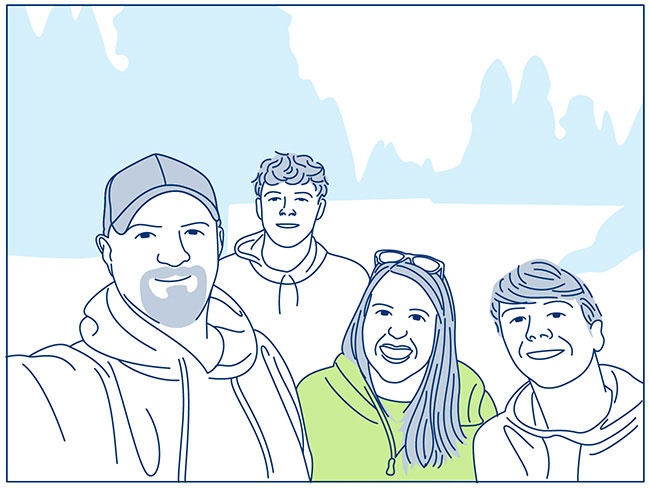
November 21, 2023
Surviving lung cancer as a nonsmoker
As a lifelong nonsmoker, Mariann Stephens was shocked to learn she had …

November 1, 2023
Tips for healthy holiday travel
Six steps help you prep for winter trips.

October 25, 2023
Breast cancer during pregnancy: Caring for mom and baby
A team of specialists treats an expecting mother’s cancer while keeping …

October 24, 2023
Childhood anxiety: What parents need to know
A child and adolescent psychiatrist shares tips on supporting your child …

October 23, 2023
A renewed sense of purpose after surviving breast cancer
Joy Short, a Kaiser Permanente member and employee, turned her breast cancer …

October 17, 2023
Flu protection for all that is you
Getting vaccinated is a safe and effective way to avoid getting sick.
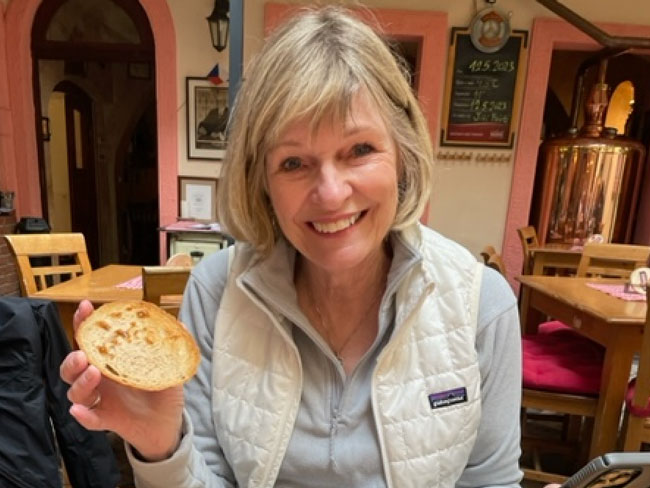
October 11, 2023
Early breast cancer detection improves quality of life
For 75-year-old Peggy Dickston, a surprise diagnosis was caught early thanks …
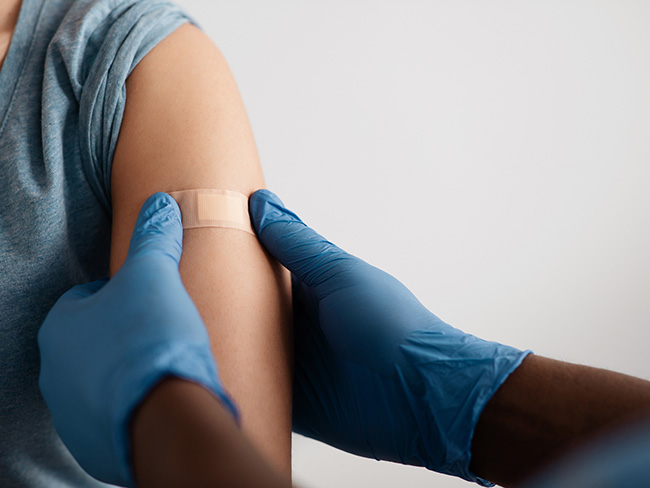
October 10, 2023
What to know about COVID-19 vaccines
The updated vaccine is recommended for everyone 6 months and older.

October 3, 2023
Nursing excellence recognized at Fontana Medical Center
The prestigious Magnet® designation affirms the compassion, dedication, …

September 29, 2023
2022 in review: A focus on equity, quality, and community
Our annual report shows how our dedicated employees and physicians provided …

September 19, 2023
Is telehealth right for you?
Members give video visits high marks — and with a few simple tips, you …

August 17, 2023
Beyond clinic walls: Research supporting healthy communities
Stories in the Department of Research & Evaluation 2022 Annual Report demonstr …

August 17, 2023
Cancer research: The role of immunotherapy
Research and clinical trials play a vital role in advancing cancer treatment …

August 16, 2023
Cervical cancer screening: Exploring the at-home HPV test
Kaiser Permanente is at the forefront of cervical cancer research. Find …

August 15, 2023
'Hot-spot' strategy gets more Californians vaccinated
A new location-based vaccine strategy by Kaiser Permanente was successful …
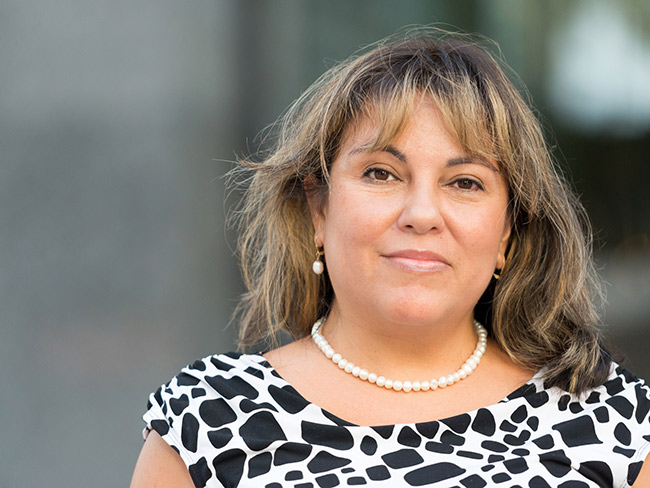
August 15, 2023
Screening for breast cancer: Mammogram guidelines
Mammograms can help detect breast cancer early, when it’s easier to treat. …

August 14, 2023
Marla’s story: Surviving acute promyelocytic leukemia
After a diagnosis for a rare type of blood cancer, Marla Marriott got high-qua …

August 10, 2023
Highlighting our community health work in Southern California
The Kaiser Permanente Southern California 2022 Community Health Snapshot …
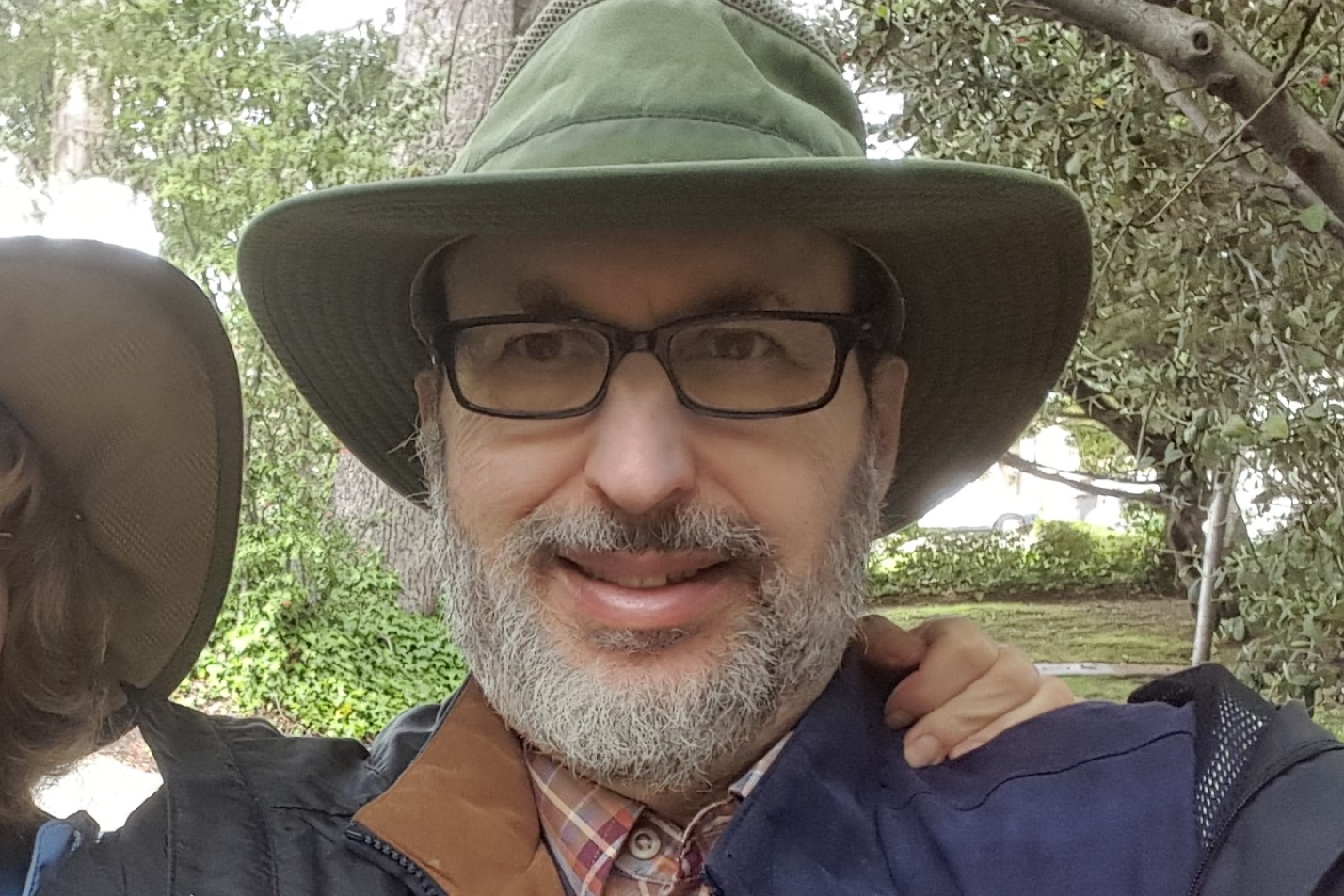
August 8, 2023
Genetic testing and customized cancer care
Harold Newman had advanced prostate cancer. Genetic testing helped expand …

August 4, 2023
Eating well and adopting healthy habits helps prevent cancer
Learn how lifestyle medicine is part of cancer care at Kaiser Permanente.
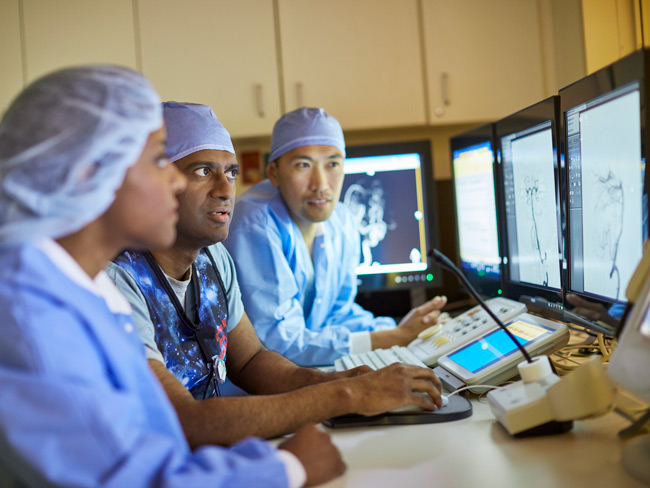
August 3, 2023
All our hospitals rated among nation’s best
For the third year in a row, every Kaiser Permanente hospital earned ‘high …
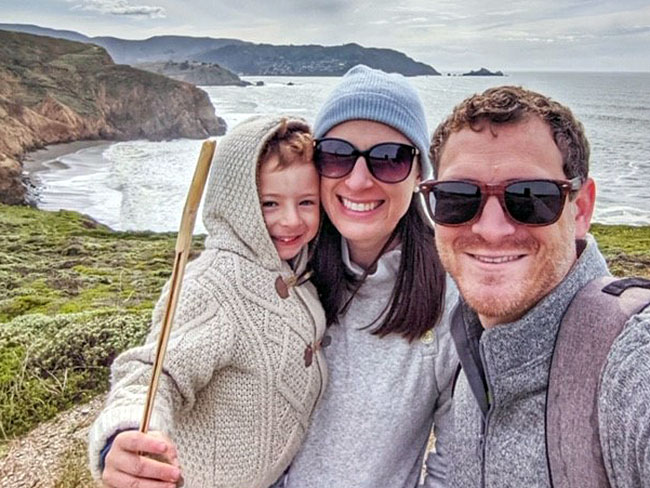
July 27, 2023
Courageously facing hereditary breast cancer
Fay Gordon's breast cancer was caught in the early stages thanks to genetic …
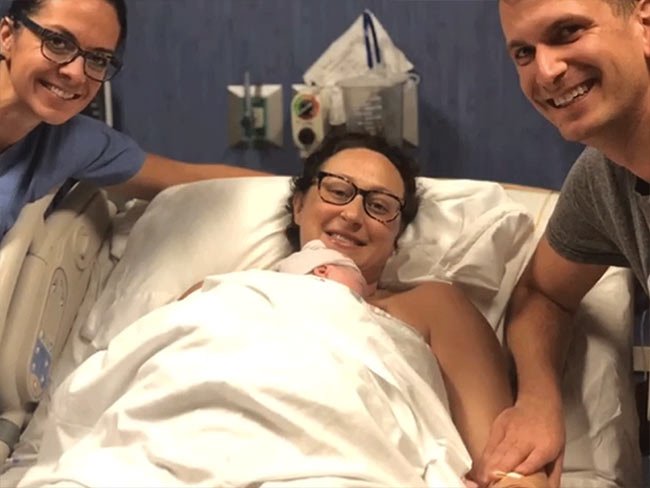
July 26, 2023
Can you get chemotherapy while pregnant?
Chemotherapy can be an option during pregnancy. Find out how Kaiser Permanente …

July 25, 2023
5 breastfeeding myths debunked
Tarayn Fairlie, MD, a pediatrician and lactation consultant, helps separate …
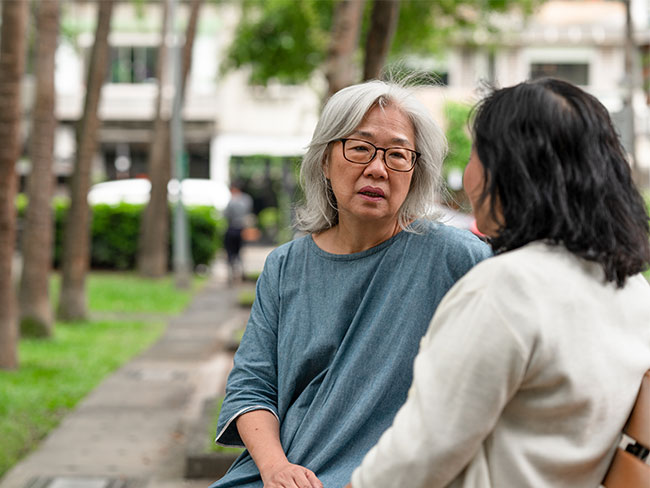
July 14, 2023
Breast reconstruction surgery after cancer
A Kaiser Permanente plastic surgeon explains breast reconstruction options …
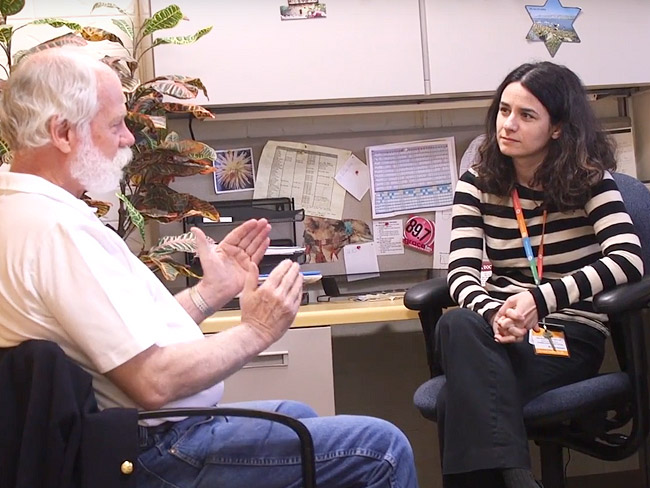
July 11, 2023
Cancer care for the body, mind, and spirit
Many people with cancer experience depression and anxiety. Mental health …

July 11, 2023
We deliver excellence for parents and babies
Our members are more likely to feed their babies breast milk. And they’re …
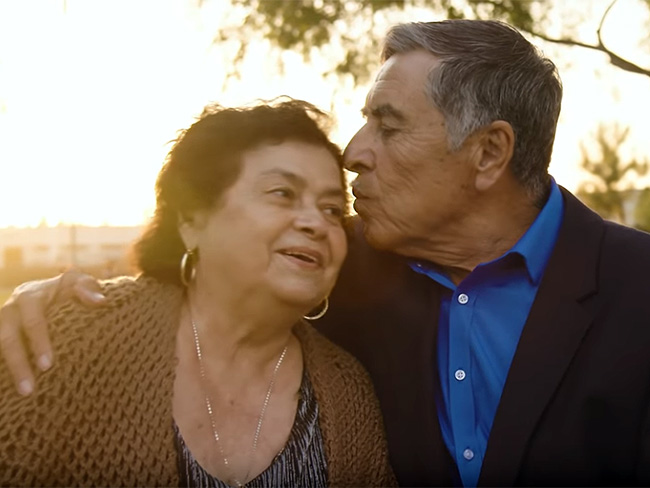
July 10, 2023
Beating colon cancer together: Miguel and Paula’s story
After they were both diagnosed with colon cancer, Miguel and Paula fought …
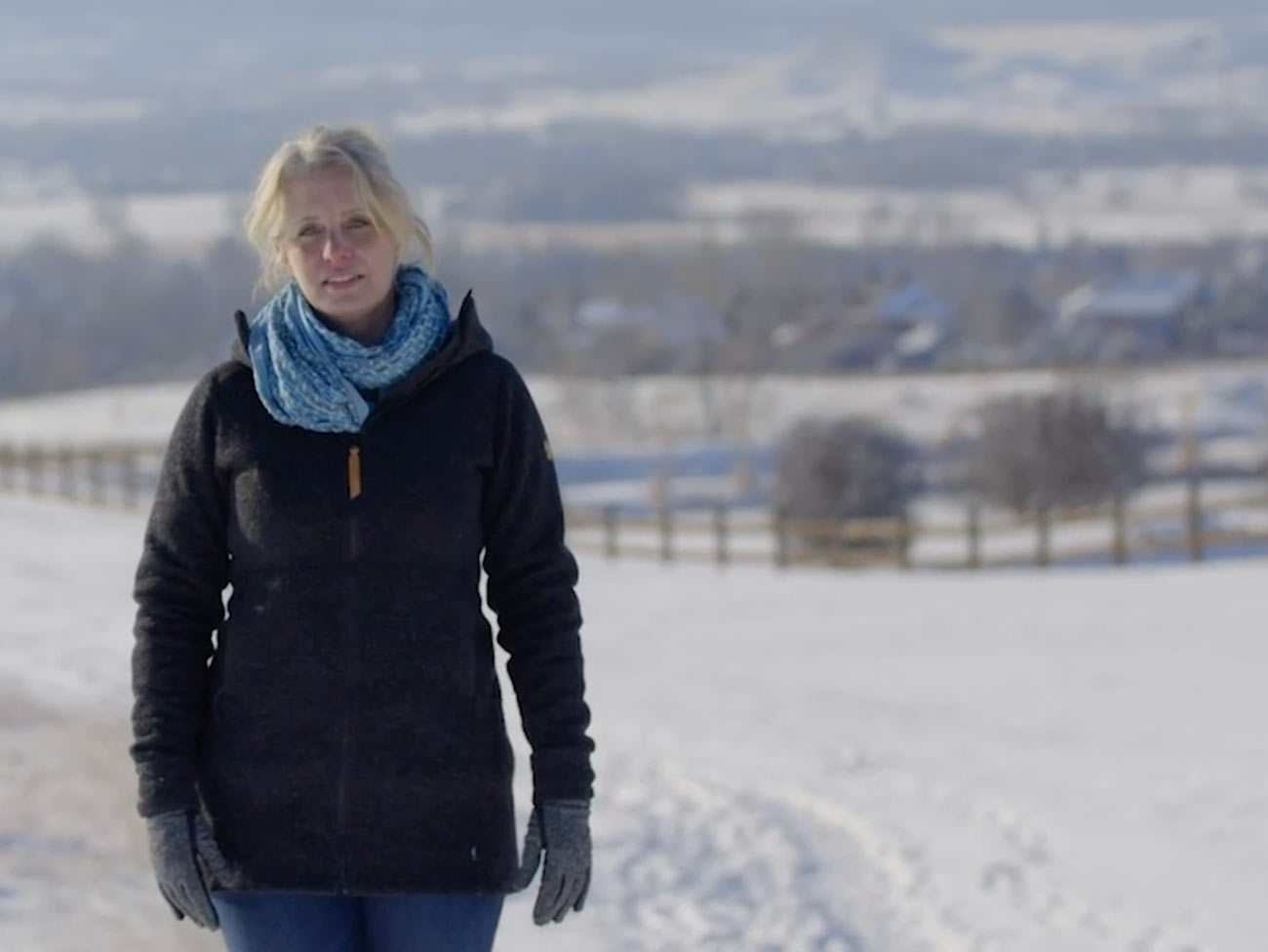
July 7, 2023
‘I am not the face of a heart attack’
Linda Tapia lives a healthy, active life, so she was stunned to be diagnosed …
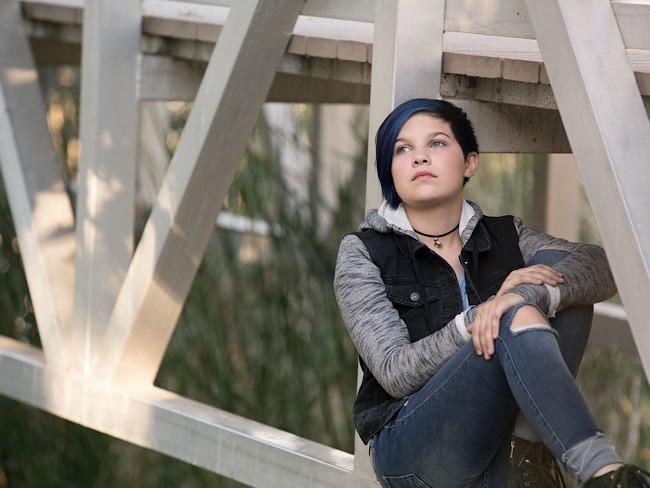
July 3, 2023
A compassionate approach is saving lives and rebuilding hope
Kaiser Permanente Los Angeles Medical Center’s Bridge Program has become …
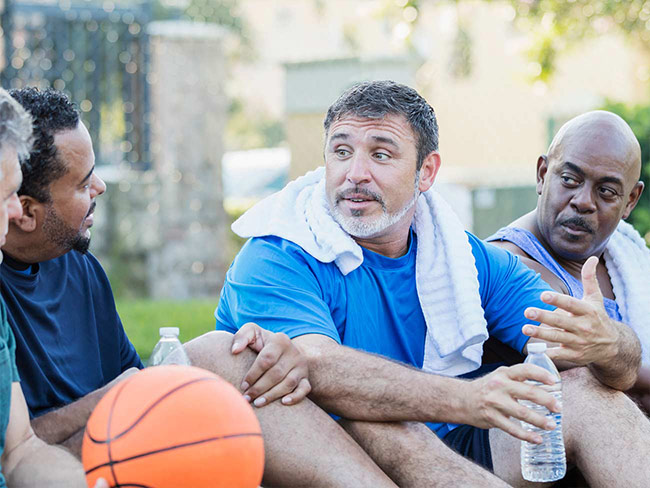
June 30, 2023
Doctors' top tips to manage prostate cancer risk factors
Age, family history, and race are key factors.
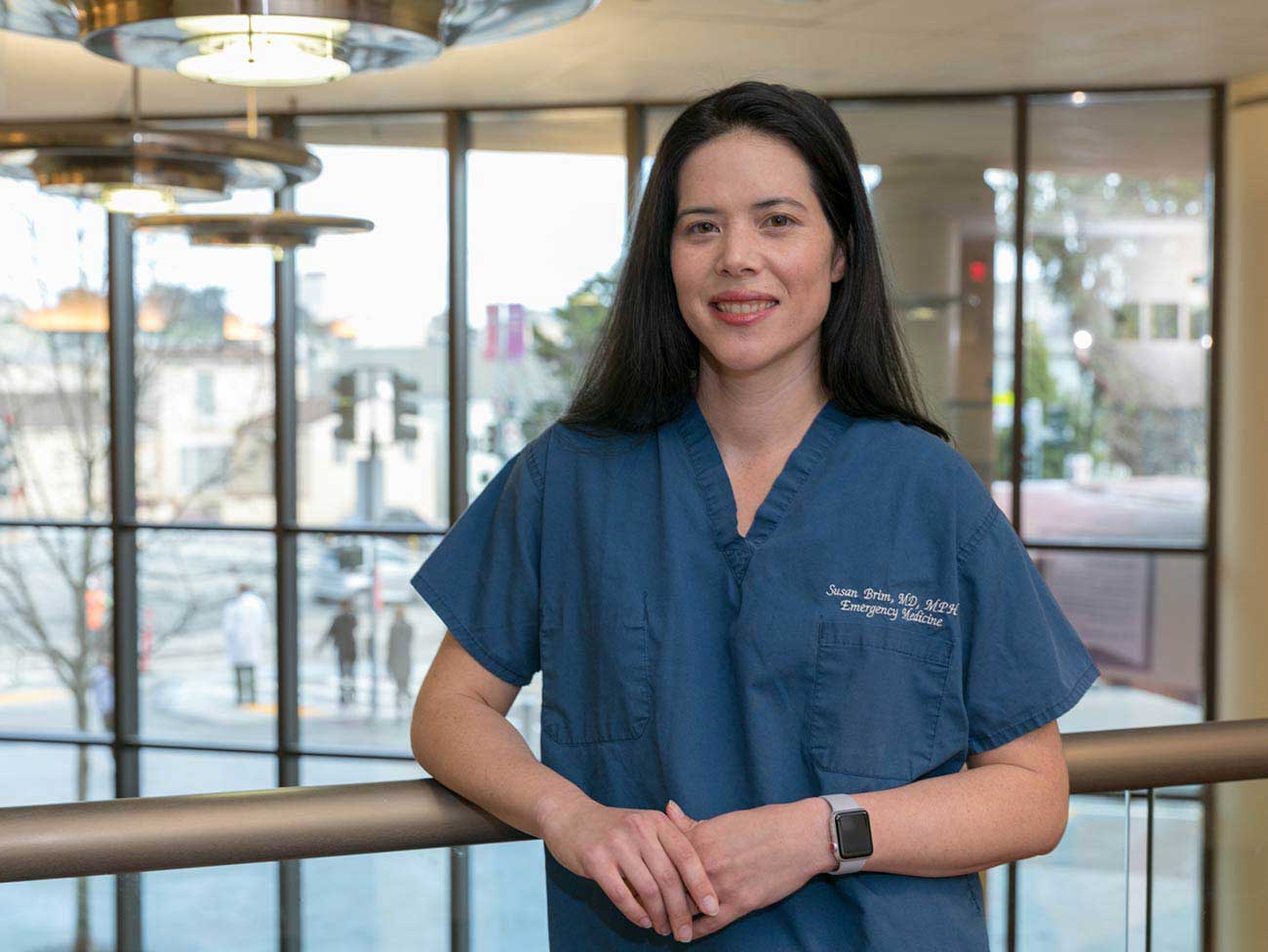
June 30, 2023
Lung cancer survivor received ‘pioneering’ care
Doctor and mother of 3 Susan Brim received top-notch care after her lung …
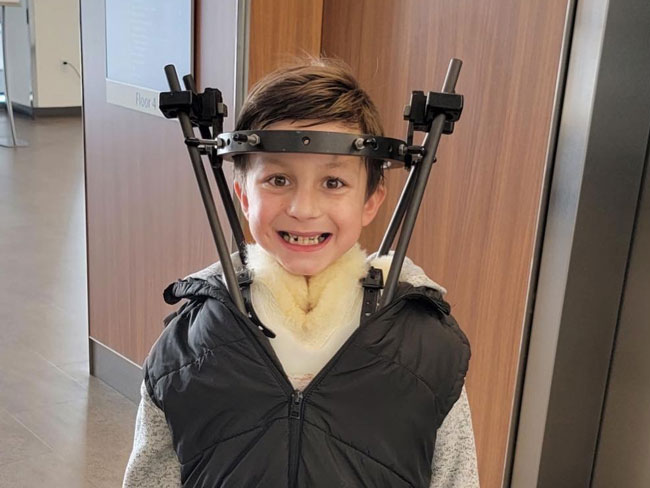
June 27, 2023
Comforting, personalized care for a kiddo with cancer
Carter Shaver from Portland, Oregon, shares his optimistic smile after …
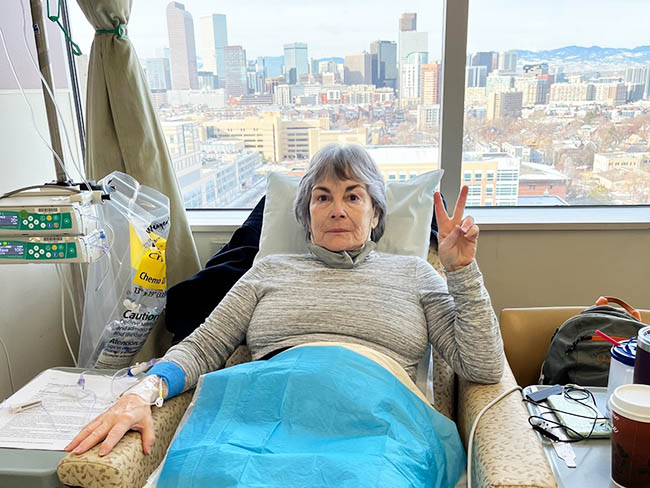
June 22, 2023
Employee joined Connect study after bloodwork results
Help change the future of cancer prevention by joining Connect today.

June 22, 2023
Higher survival rates for our patients with colon cancer
A new study compares Kaiser Permanente members in Southern California to …

June 15, 2023
Stay safe while having fun in the sun
Tips for preventing sunburn and decreasing the risk of skin cancer.
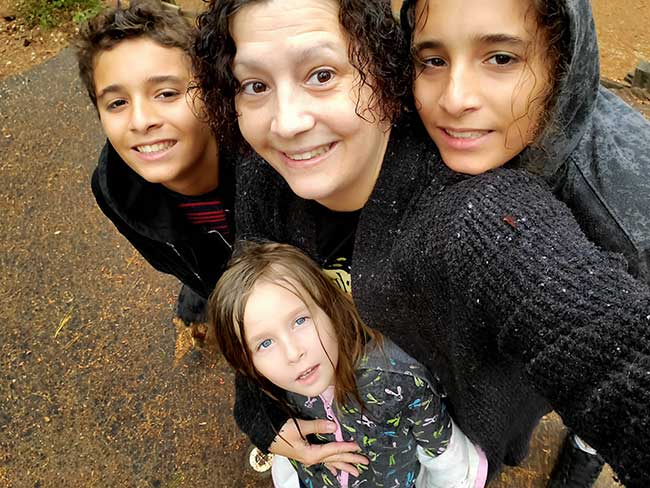
June 14, 2023
Living with stage 4 breast cancer
Thanks to personalized care from a team of skilled doctors, Christina McAmis …
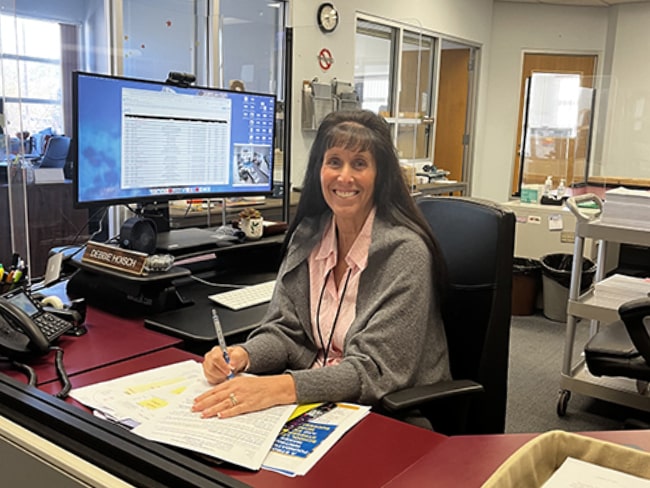
June 2, 2023
Worth knowing the warning signs
Kaiser Permanente member Debbie Hoisch encourages people to know the warning …

May 30, 2023
The healing power of shared cancer experience
Peer mentoring program matches new cancer patients with others who’ve gone …

May 18, 2023
The gold standard of nursing excellence
Kaiser Permanente Baldwin Park Medical Center achieves Magnet status, the …
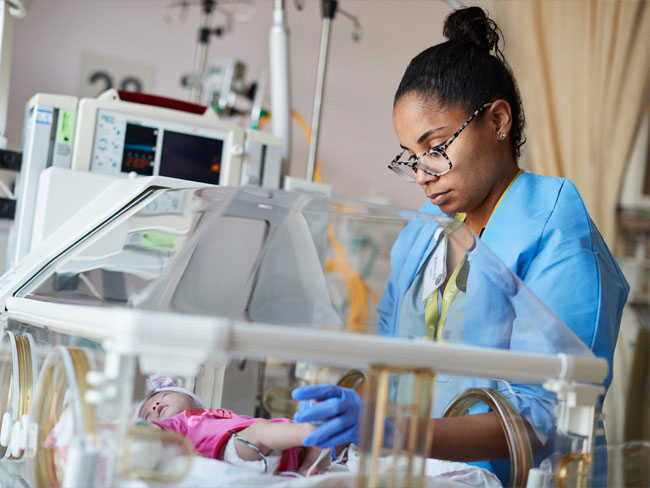
May 8, 2023
Paying tribute to our extraordinary nurses
During National Nurses Week, we thank our remarkable nurses and celebrate …
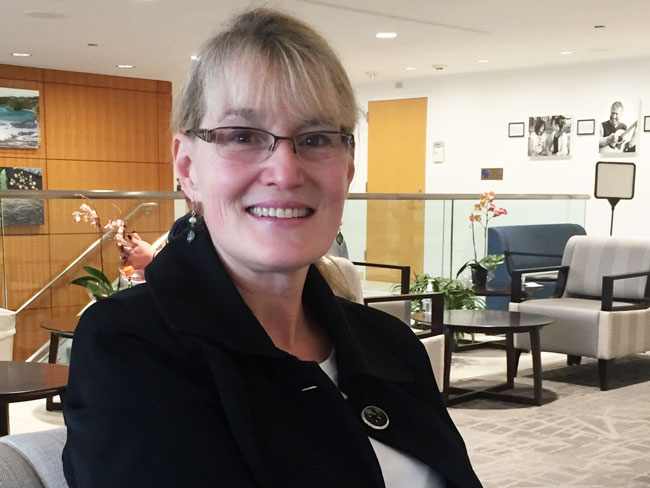
May 4, 2023
An unexpected cancer diagnosis
As a nonsmoker, Betty Schuldt’s stage 4 lung cancer diagnosis was surprising, …

May 2, 2023
Hawaii hospital named one of America’s best stroke centers
Kaiser Permanente Moanalua Medical Center recognized by the Women’s Choice …

April 25, 2023
Hannah Peters, MD, provides essential care to ‘Rosies’
When thousands of women industrial workers, often called “Rosies,” joined …

April 7, 2023
Virtual care helps ease physical pain
Kaiser Permanente offers many high-quality, convenient options to help …
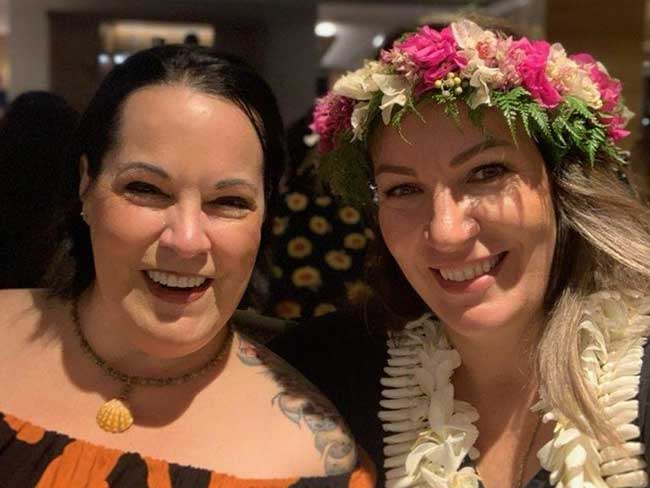
March 24, 2023
Finding hope after a mental health and addiction crisis
Treatment for bipolar disorder and opiate addiction helps a Kaiser Permanente …

March 17, 2023
A call to 'Connect' for cancer research
A new study invites participants in Oregon to help uncover what causes …

March 14, 2023
Colorectal cancer on the rise among younger adults
Learn why early screening is crucial for prevention and treatment.
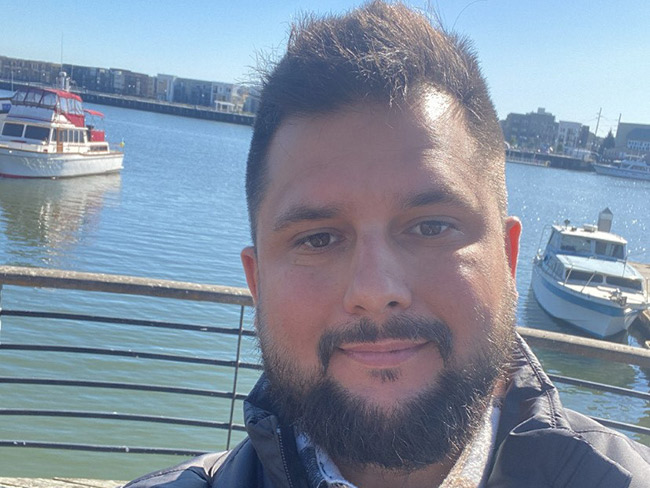
March 6, 2023
Living with long COVID
From avid snowboarder to chronically ill patient. How Kaiser Permanente …
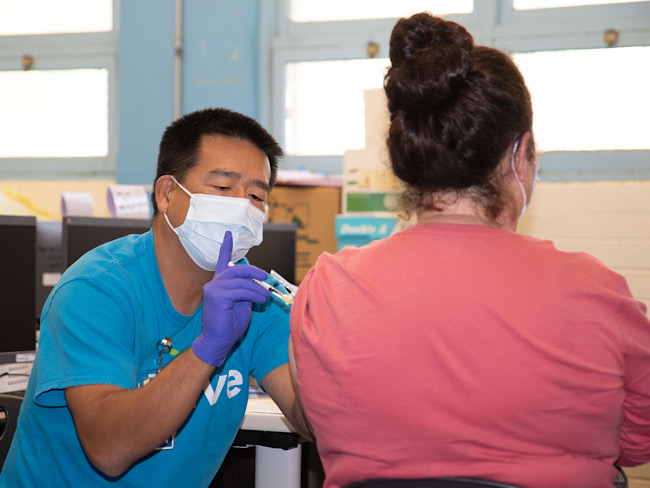
March 6, 2023
Have shots, will travel
Hawaii community vaccination team’s pop-up events with COVID-19 and flu shots.
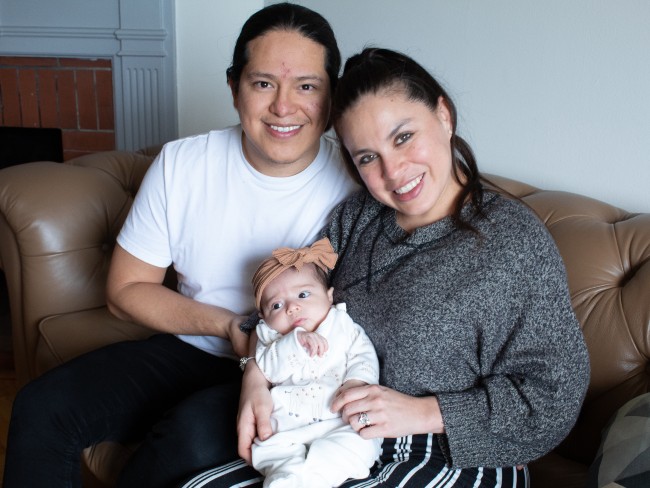
March 1, 2023
‘I am so grateful for life’
After a traumatic boating accident, Gabriela Curiel was airlifted to the …
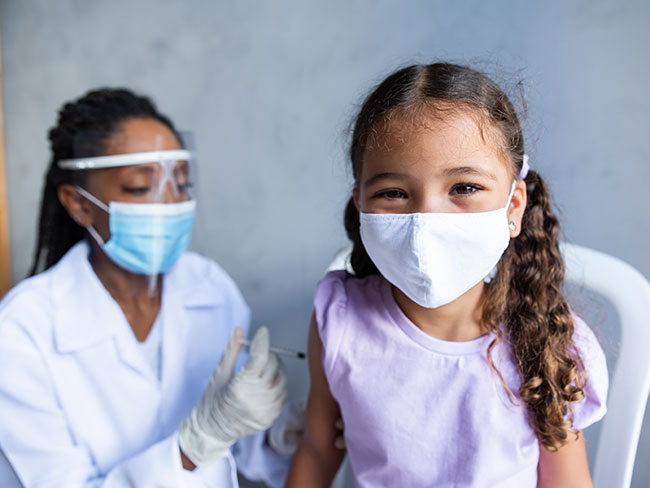
February 27, 2023
Teaching flu a lesson
School-based flu vaccination clinics made it safe and convenient for students …
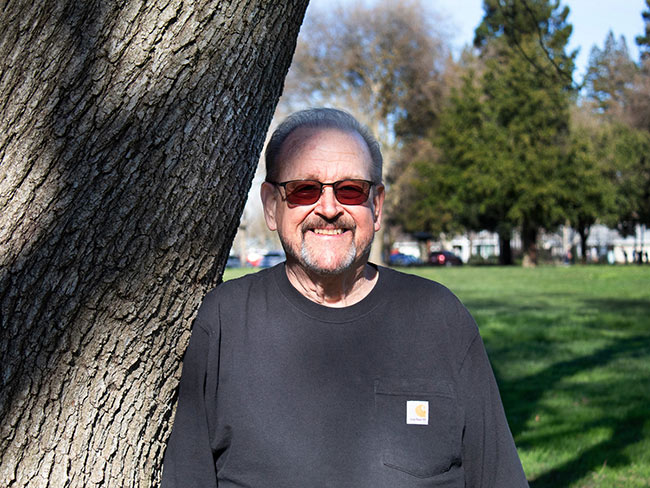
February 15, 2023
A new chapter for male patient with breast cancer
A multidisciplinary care team acted fast to help save the life of a Kaiser …
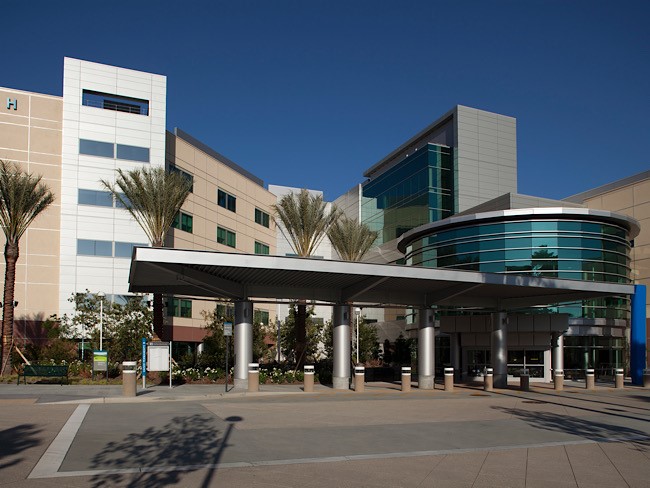
February 2, 2023
The gold standard of nursing excellence
Kaiser Permanente Ontario Medical Center achieves Magnet® status, the highest …

February 1, 2023
Her heart was telling her something wasn’t right
When a Kaiser Permanente member discovered she had an irregular heartbeat …

January 27, 2023
Timely flu vaccinations at community events
Proactive flu prevention outreach in Downey, California.
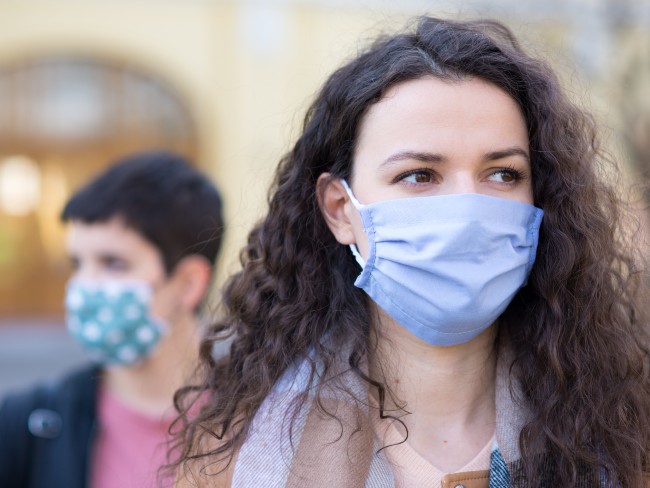
January 25, 2023
Projections for COVID-19 in 2023
Two leading infectious disease physicians discuss what to expect with COVID-19 …
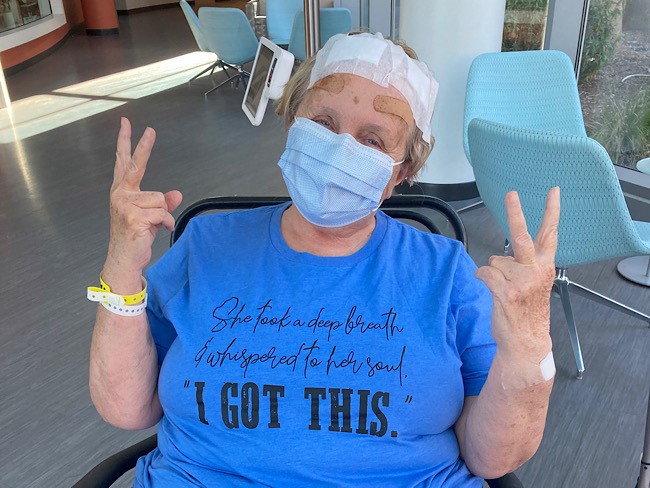
January 25, 2023
Awake brain surgery changed patient’s life
A Southern California member with Parkinson’s disease underwent deep brain …

January 13, 2023
Making dreams come true
Member achieves bucket list goal of helping to build a Rose Parade float, …
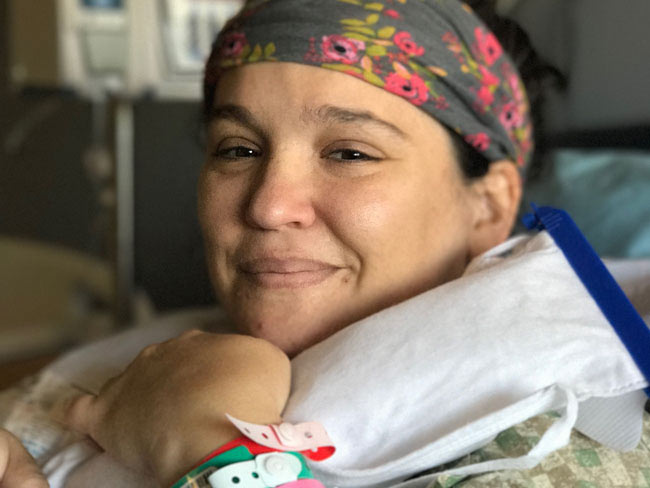
December 21, 2022
From cancer patient to cancer colleague
A Kaiser Permanente member’s cancer journey inspires her to join the team …
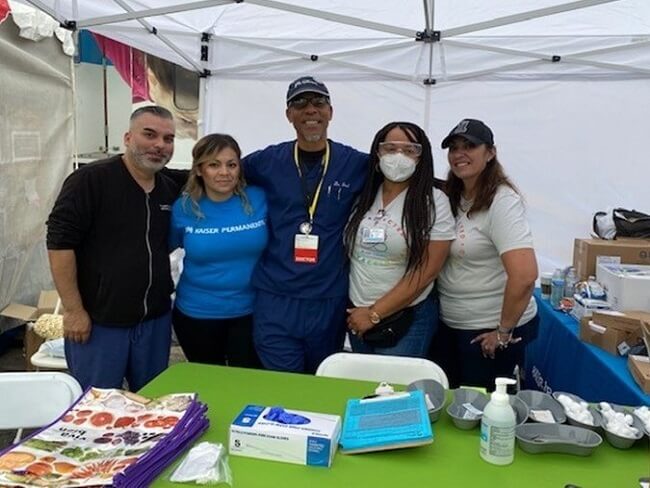
December 6, 2022
Building stronger, healthier communities at community event
Volunteers offered preventive care, first aid, cooling stations, and complimen …

November 17, 2022
You’d never know she has lung cancer
Patients like Carol Pitman are living longer, more fulfilling lives thanks …

November 16, 2022
Passport to preventive care
Special event helps Latino community ensure their flu vaccinations and …

November 14, 2022
It’s time to rethink health care quality measurement
To meaningfully improve health equity, we must shift our focus to outcomes …

November 10, 2022
Stage 4 lung cancer: A story of hope
A young father is enjoying “bonus time” with his kids thanks to new targeted …
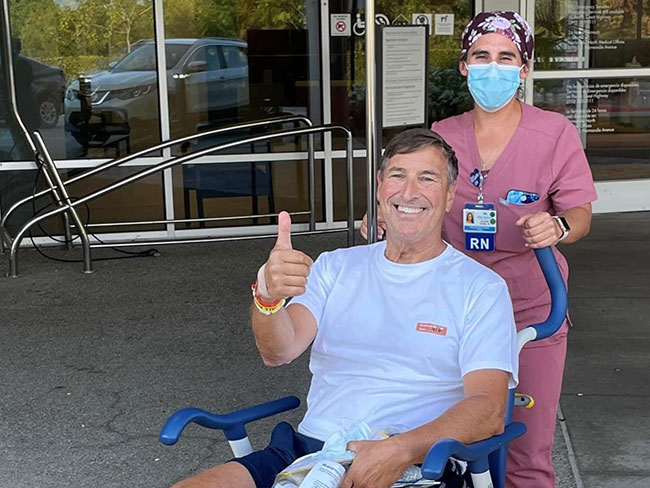
October 11, 2022
Cycling into retirement after knee repair
Expert, compassionate care after orthopedic surgery helps speed up the …
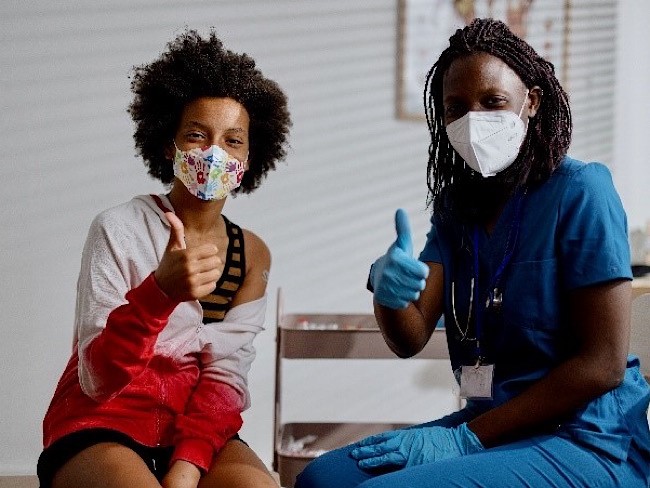
October 3, 2022
Flu shots save lives and offer proven protection
Black people, Latinos, and people over 65 years of age are especially vulnerab …
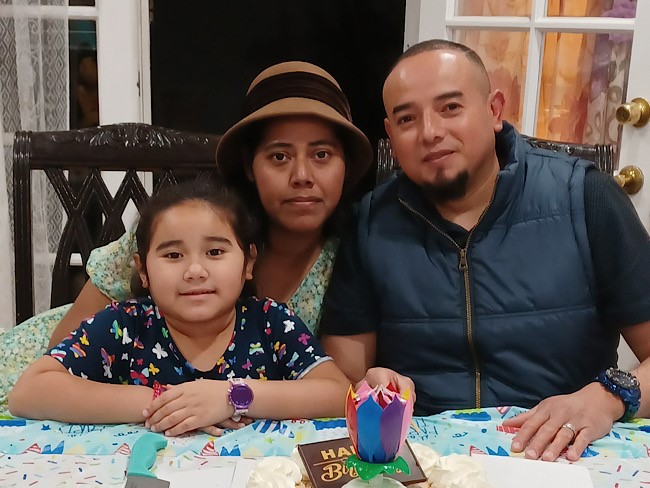
September 27, 2022
Medical excellence, compassionate nursing save mother’s life
A young woman sought help for what she thought was a work-related injury, …
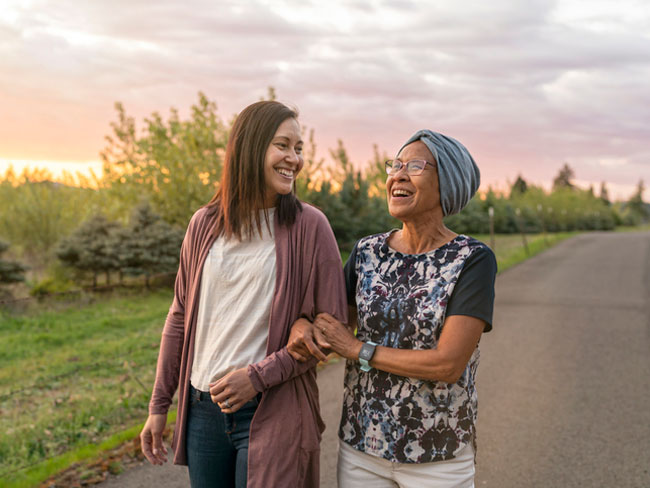
August 17, 2022
Cancer clinical trials: Can they help find a cure?
These important research studies aim to help patients live longer, better …

August 17, 2022
2021 annual report sheds light on another challenging year
We reflect on 3 major COVID-19 surges, urgent vaccination efforts, and …